Publications
Articles, publications, books, tools and multimedia features from the U.S. Institute of Peace provide the latest news, analysis, research findings, practitioner guides and reports, all related to the conflict zones and issues that are at the center of the Institute’s work to prevent and reduce violent conflict.
Question And Answer
Amid a Changing Global Order, NATO Looks East
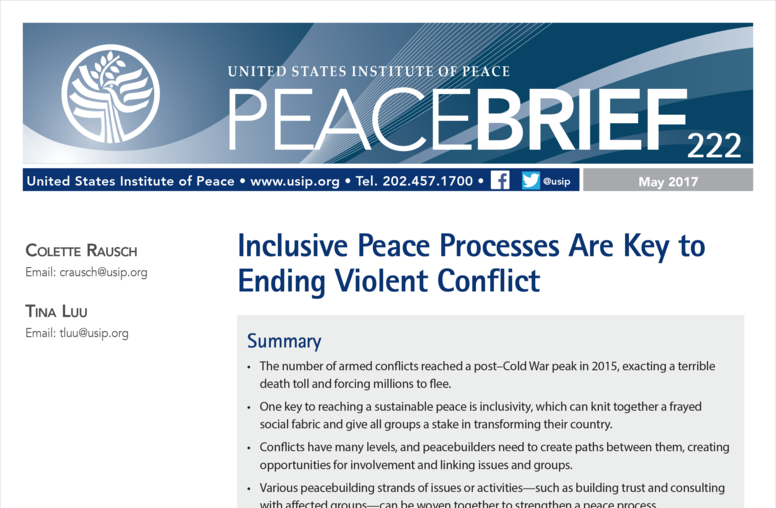
Inclusive Peace Processes Are Key to Ending Violent Conflict
Violent conflict, refugee flows, and internal displacements present international policymakers and practitioners today with unprecedented challenges. Tackling these problems requires not only signed peace agreements but also sustainable peace. It is not enough to bring armed actors to the negotiating table, however. To be effective, the peace process needs to be inclusive and participatory. But what constitutes inclusive participation, and how can peacemakers and peacebuilders achieve it in their own, very different societies? Drawing on discussions in a public forum held in early 2017, this Peace Brief looks at the elements of peacebuilding and explains how critical inclusive participation is to that process.
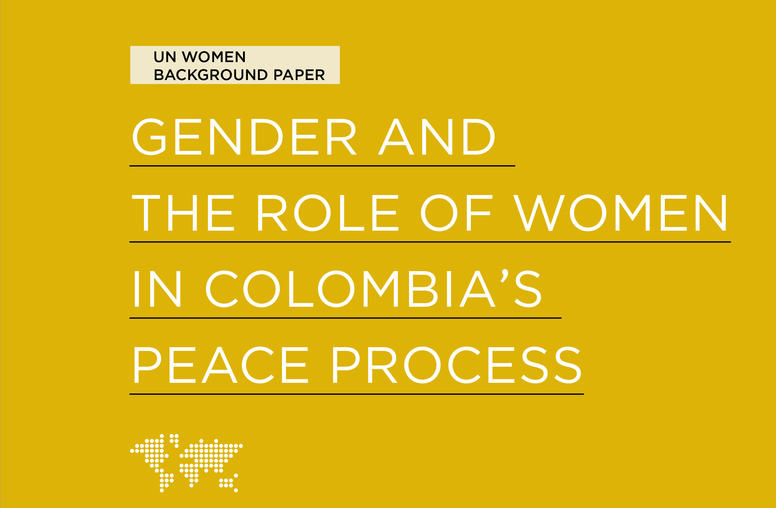
Gender and the Role of Women in Colombia's Peace Process
The promises and visions articulated in United Nations Security Council Resolution 1325 and subsequent UN resolutions and position papers that recognize the connection between gender equity and women’s participation in all aspects of peace processes and peacebuilding on the one hand, and international peace and security on the other, have not been fulfilled. Nonetheless, these resolutions have opened the way for advocacy that has had some successes in specific contexts. Colombia offers one su...
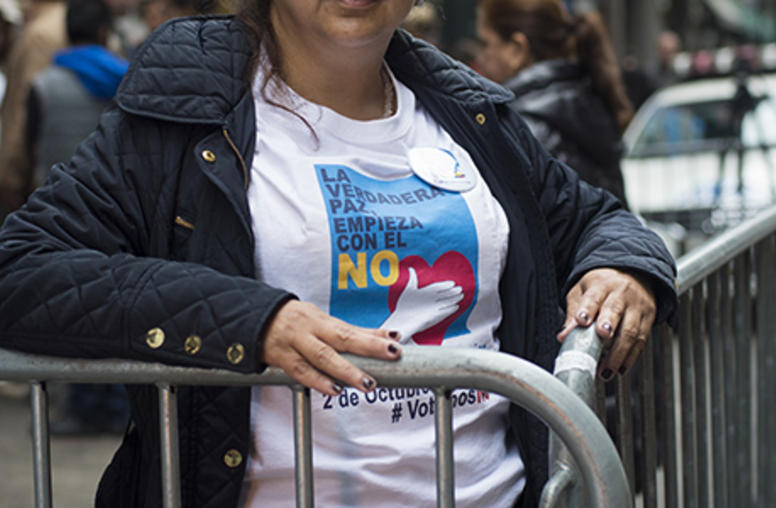
Q&A: Colombians Narrowly Reject Peace Deal
Colombian voters yesterday defied projections by pollsters and rejected a peace accord that their government had negotiated during four years of talks with the Revolutionary Armed Forces of Colombia (FARC-EP). The agreement was intended to end more than a half century of violent conflict that has left well over 220,000 dead and close to 8 million victims, including more than 6 million people forcibly displaced. USIP’s Senior Advisor for Peace Processes Virginia M. Bouvier explains why voters ...
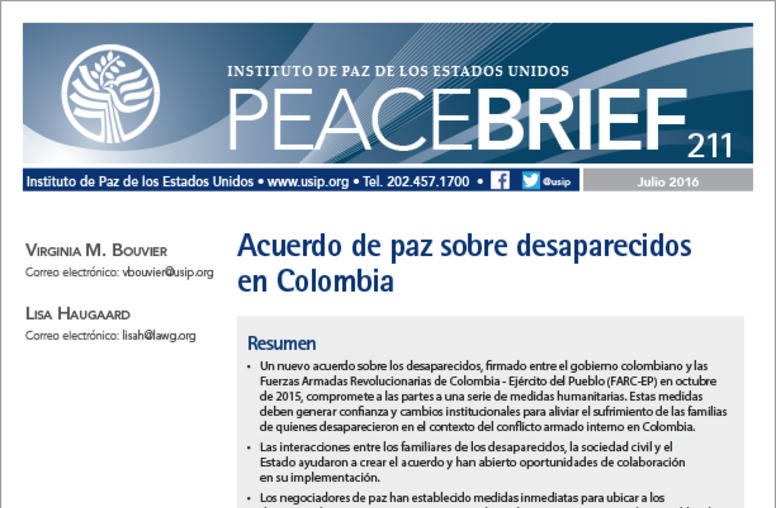
Colombia’s Peace Accord on the Missing (Spanish)
Las desapariciones forzadas son un legado de medio siglo de conflicto armado interno en Colombia. Afectan a sectores pobres en el campo y en los centros urbanos, trabajadores, campesinos y campesinas, periodistas, defensores y defensoras de los derechos humanos, políticos de la oposición y lideres y lideresas afro-colombianos e indígenas. Además, miembros de las fuerzas públicas y de la guerrilla han desaparecido en el contexto del conflicto armado colombiano. Este informe analiza un acuer...
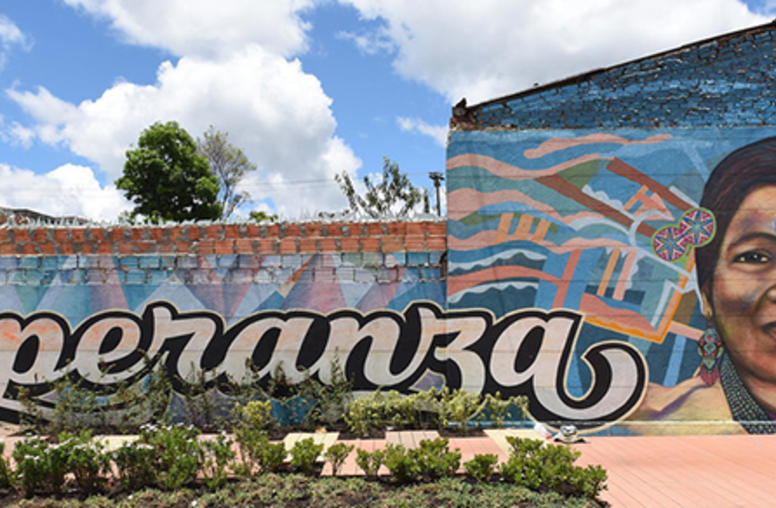
Q&A: Colombia Peace Deal Announced — What’s Next?
After 52 years of armed conflict, the Colombian government and the country’s oldest rebel group, the Revolutionary Armed Forces of Colombia (FARC-EP), announced a final agreement last night aimed at ending one of the world’s longest-lasting insurgencies. The U.S. Institute of Peace’s Virginia M. “Ginny” Bouvier, who has studied the peace process from the outset and advised Colombian government officials, civil society and others promoting a political solution to the conflict, comments on the ...
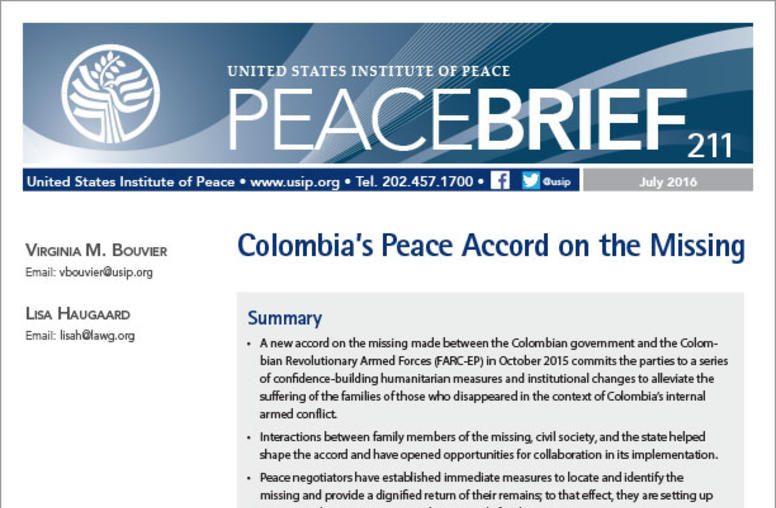
Colombia’s Peace Accord on the Missing
Forced disappearances are a legacy of Colombia’s half-century of internal armed conflict. They have affected the rural and urban poor, labor and peasant organizers, journalists, human rights defenders, politicians, and Afro-Colombian and indigenous leaders. Likewise, in the context of Colombia’s war, members of the military and guerrillas have also gone missing. This brief examines an agreement on the missing reached in October 2015 between the Colombian government and the Colombian Revolutio...
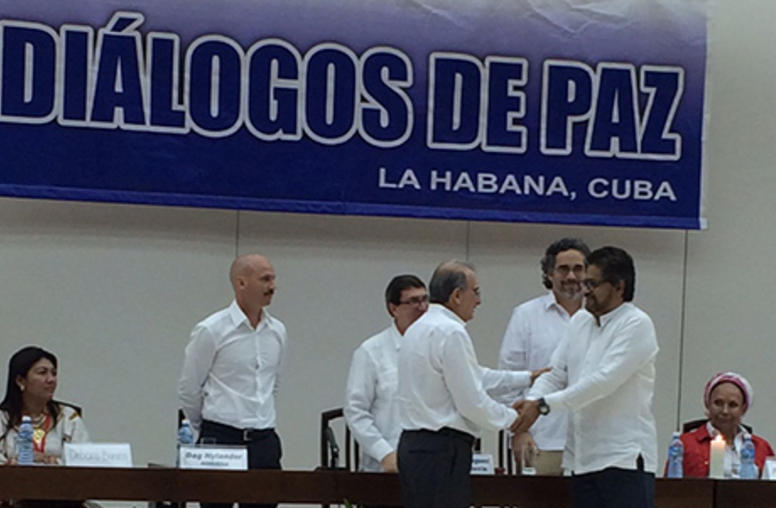
Q&A: Colombia Cease-Fire Accord Marks Historic Turn
More than a half-century of internal warfare in Colombia is on the brink of a peaceful resolution after four years of talks that suggest how other seemingly intractable conflicts in the world also might be brought to an end. With the announcement yesterday of a ceasefire between the government and the Revolutionary Armed Forces of Colombia (FARC-EP), the adversaries in one of the world’s oldest guerilla insurgencies disclosed new agreements on the two major issues that were holding up a final...
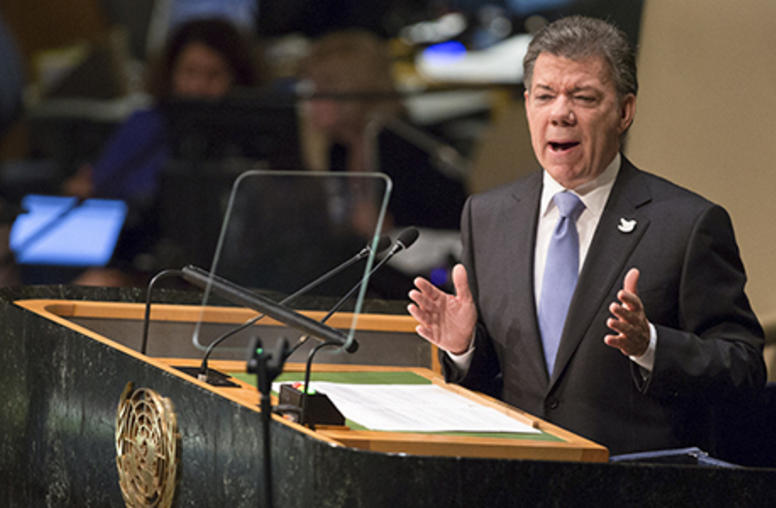
Q&A: Colombia’s President Santos in Washington
Colombian President Juan Manuel Santos meets President Barack Obama on Feb. 4 in Washington to commemorate the 15th anniversary of “Plan Colombia,” a U.S.-led effort that has provided about $10 billion to help the South American country’s security forces fight leftist guerrillas and drug traffickers. Virginia Bouvier, a senior advisor for peace processes at the U.S. Institute of Peace, who has led the Institute’s work on Colombia for the past decade, talks about Santos’s visit and the fast-mo...
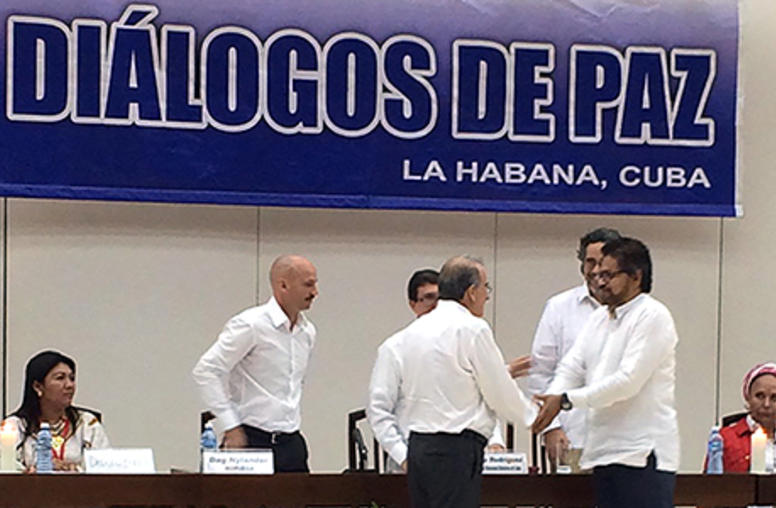
Q&A: Colombia, Guerrillas Reach Accord on Rights for Victims of War
Making a peace deal that accommodates the needs of the millions of civilians hurt by Colombia’s 50-year-old conflict has challenged negotiators since talks between the government and the nation’s largest guerrilla group began three years ago. This week, negotiators announced an agreement on victims, completing the fourth item on a six-point agenda that’s aimed at ending hostilities. USIP’s Virginia Bouvier, who was in Havana for the declaration on victims, said the latest accord is another hi...
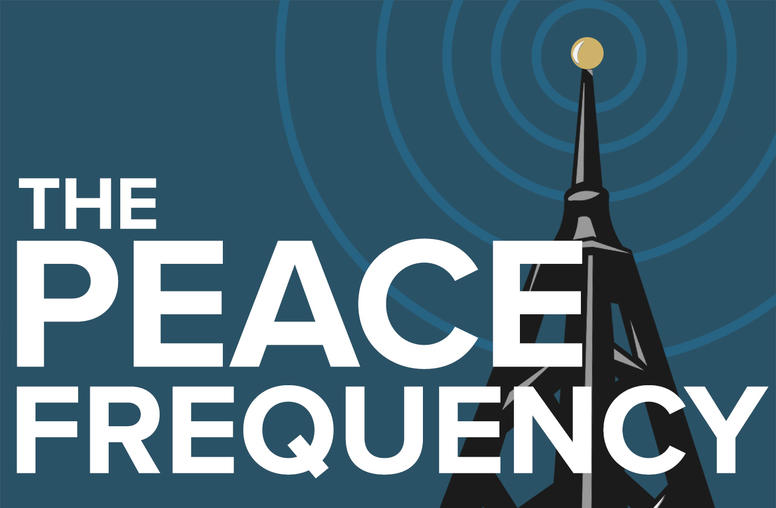
Episode 27 - Virginia Bouvier
In this episode, we speak with Virginia (Ginny) M. Bouvier, Senior Advisor for Latin America programs at the United States Institute of Peace. She describes the ongoing peace process in Colombia, whic